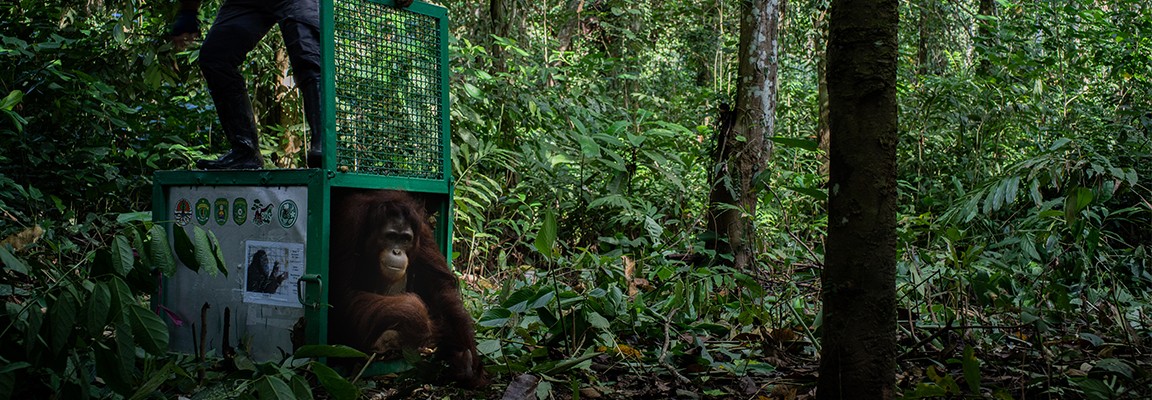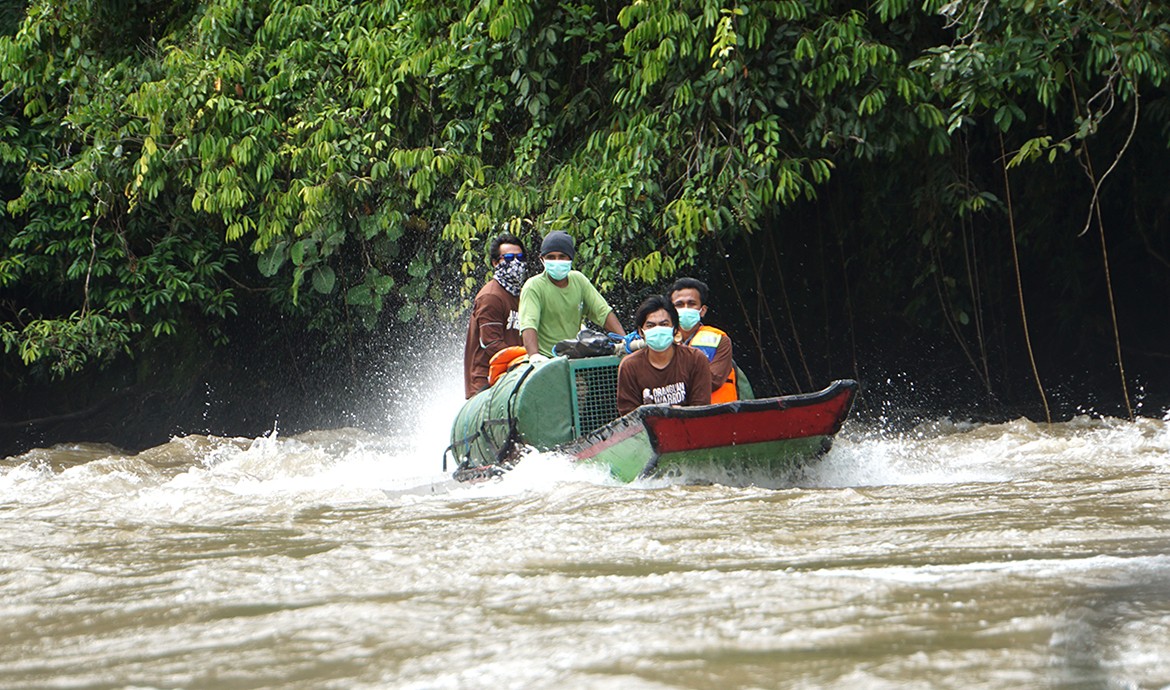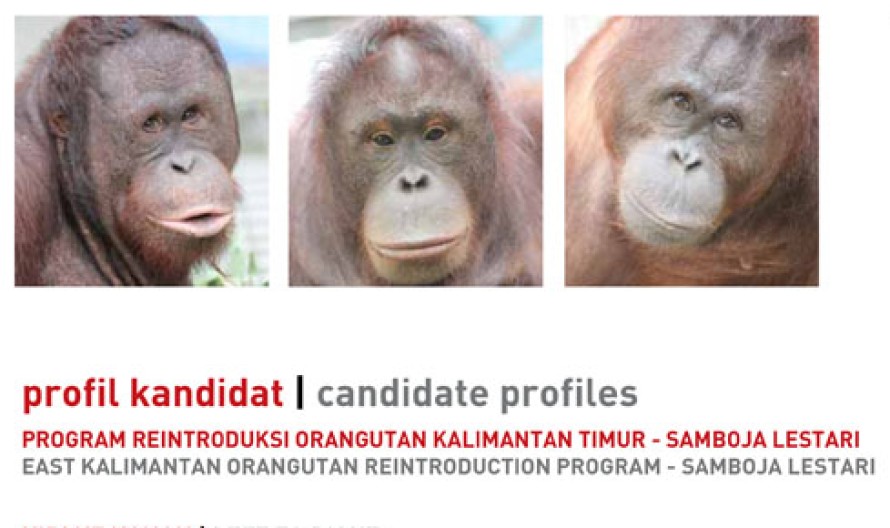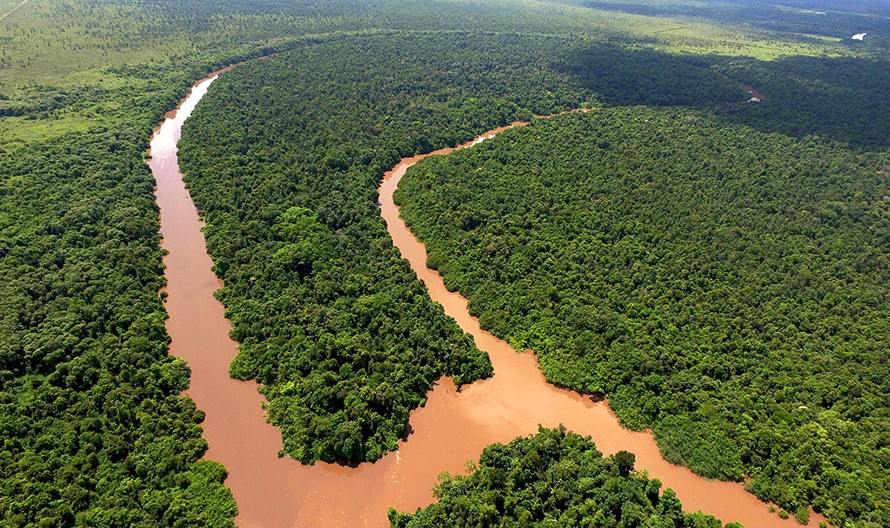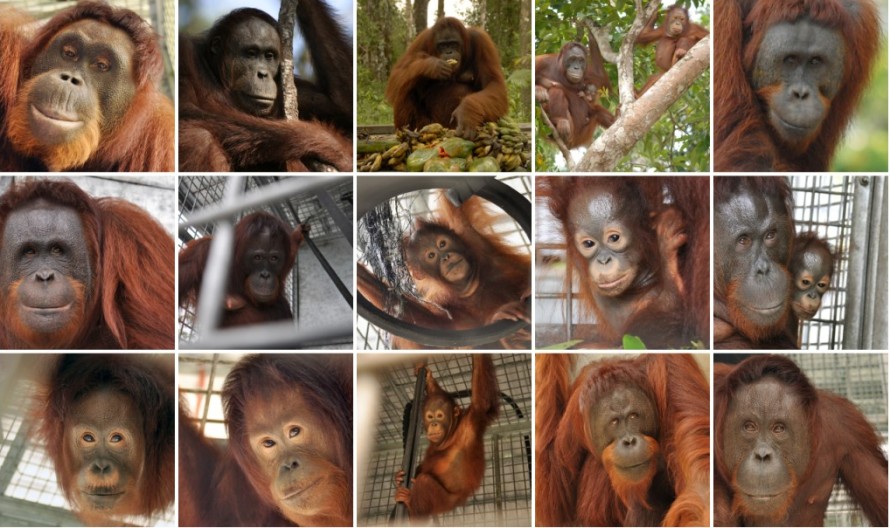The BOS Foundation, in cooperation with the East Kalimantan Natural Resources Conservation Agency (BKSDA), will release six more orangutans from the East Kalimantan Orangutan Reintroduction Program in Samboja Lestari to the natural habitat of the Kehje Sewen Forest in East Kutai Regency. With this release, the population of rehabilitated orangutans in the area will rise to 97.
In commemorating the 73rd anniversary of Indonesia’s Independence, the BOS Foundation, winner of 2017 Animalis Edition World Branding Award, has again worked in cooperation with the East Kalimantan BKSDA to release six rehabilitated orangutans from the Samboja Lestari Orangutan Rescue and Rehabilitation Centre and Juq Kehje Swen pre-release island in Muara Wahau. This release also marks International Orangutan Day, which falls annually on August 19.
This will be the 17th orangutan release since the first one conducted in the Kehje Sewen Forest, in 2012. It will also take the wild orangutan population reintroduced to this 86,450-hectare Ecosystem Restoration Concession forest, located in Muara Wahau Sub-district, East Kutai Regency, to 97 individuals.
The group of six orangutans to be released includes four males - Mads (8 years old), Riva (7), Bieber (7), and Restu (6); and two females; Menur (11) and Josta (11). All six orangutans were assessed as possessing the skills and behaviours required to survive independently in a wild habitat. The four males will be dispatched from Samboja Lestari, while the two females will be brought from Juq Kehje Swen Island. The group will meet up and assemble prior to entering the Kehje Sewen Forest, following a 20-hour trip from Samboja Lestari.
The carrying capacity of release sites in East Kalimantan is shrinking by the day. This is of great concern to the BOS Foundation. Surveys have estimated that the 86,450-hectare Kehje Sewen Forest can only accommodate up to 150 orangutans. Meanwhile, the number of orangutans undergoing rehabilitation or in our care at Samboja Lestari still stands at around 140 individuals, with most awaiting release. This worrying situation has driven the BOS Foundation to commit more time and energy to seeking alternative, suitable release sites for future orangutan releases.
DR. IR. JAMARTIN SIHITE, BOS Foundation CEO, said; “We are maintaining our commitment to ensure that the wild orangutan population in East Kalimantan will not become extinct, by putting all the orangutans we rescue through our rehabilitation program and returning them to natural forests. However, our efforts are being hampered by the limited carrying capacity of our existing release sites. The BOS Foundation is in dire need of more support from international and national donors, the local community, the local government, and the Ministry of Environment and Forestry to provide additional release areas in East Kalimantan.
We, the BOS Foundation, cannot stress enough the importance of orangutans to our forests. The orangutan, a Critically Endangered species protected by law, plays a vital role in our forest ecosystems. We need forests to provide us with clean water and air, forest products, and a well-regulated climate. Every single one of us will benefit from the orangutans—the only Asian great ape species—thriving in Indonesian rainforests. We need their presence in our forests, and therefore, we must work together to ensure their survival."
IR. SUNANDAR TRIGUNAJASA N., Head of the East Kalimantan BKSDA, said; “The East Kalimantan BKSDA continues to work with the BOS Foundation, not only to rescue orangutans, but to release them back to their natural habitat. Our partnership has saved and returned hundreds of orangutans back to the forests of East Kalimantan. However, great conservation work should not be left to just two institutions. We must involve the private sector, which historically has had a limited role in the conservation effort.
The challenge ahead is to involve more parties and replicate our cooperative work in other conservation areas. We are all stakeholders in environment conservation – me, you, all of us. Anybody can help by reporting or stopping attempts to hunt, catch, kill, or keep wild animals that are protected by law, including orangutans. These animals are a vital part of forest ecosystems. Let's protect our precious forests and the biodiversity within.»
Man-made Juq Kehje Swen Island, where Josta and Menur underwent the pre-release stage of rehabilitation, resulted from the partnership between the BOS Foundation and PT. Nusaraya Agro Sawit (PT. NAS). This 82.84-hectare island, located in Muara Wahau Sub-district, has a good quality forest, is isolated by a year-long surrounding body of water, and supports the adaptation process and socialisation for orangutans. In terms of food availability, the island has the capacity to carry around 40 orangutans.


